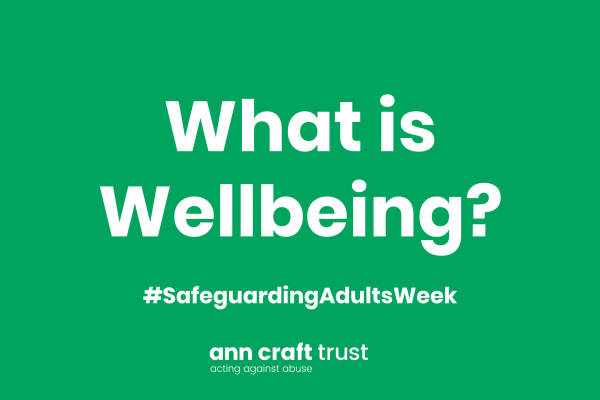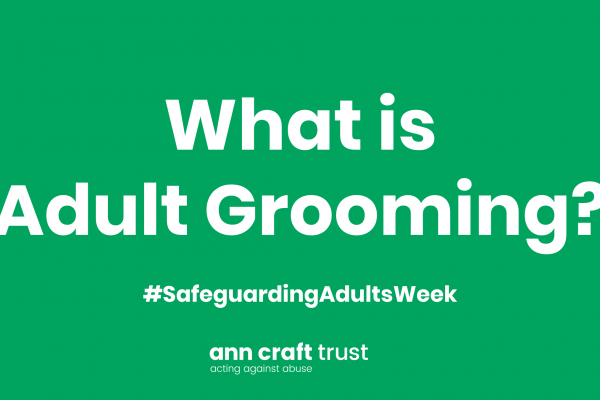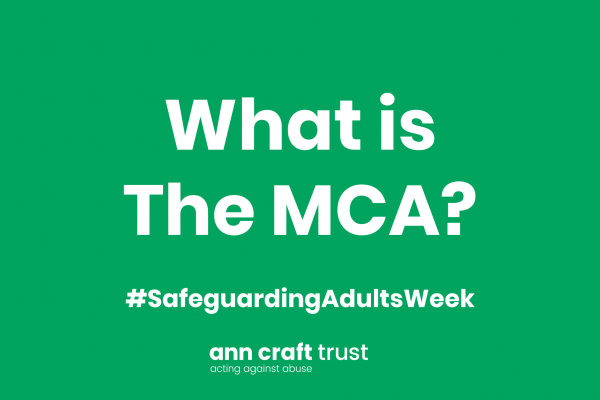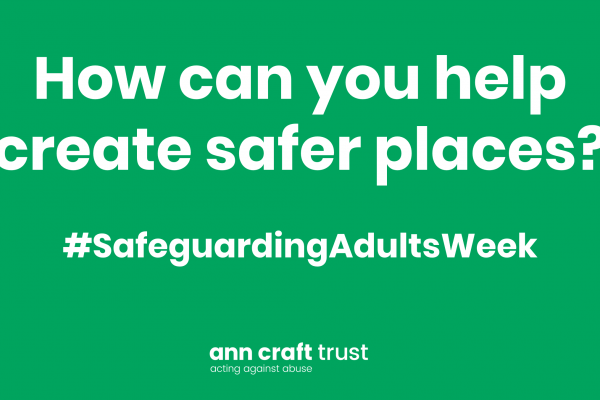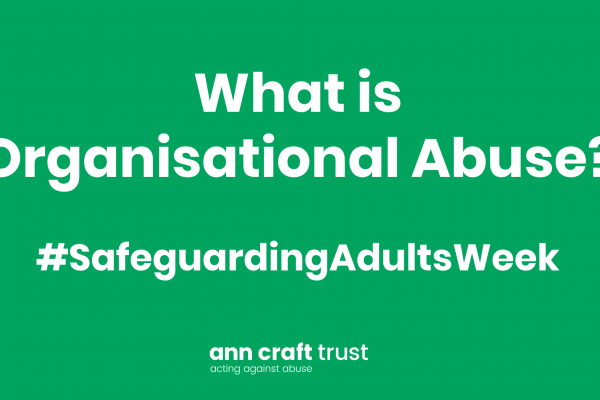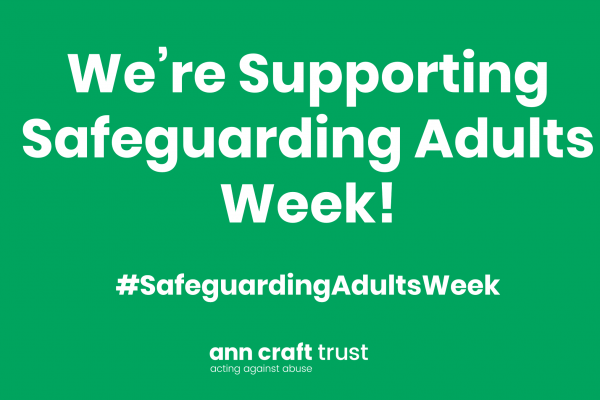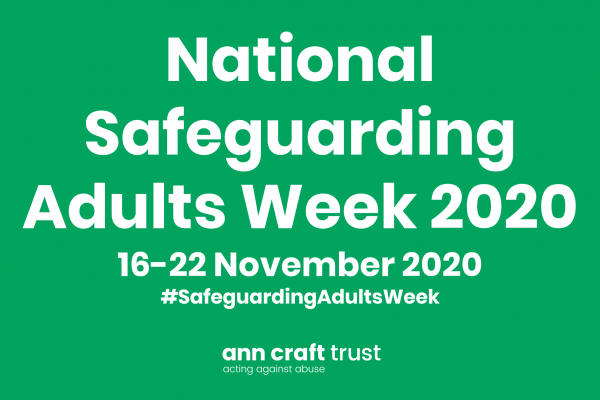This week we are supporting Safeguarding Adults Week.
Safeguarding is the term we use for how we will keep the most vulnerable people in our communities safe from harm.
The Ann Craft Trust, a national charity which works to minimise the risk of abuse of disabled children and adults at risk, have highlighted some key themes to consider throughout the week.
Monday
Safeguarding & Wellbeing
• There’s a strong link between safeguarding and mental and
physical wellbeing.
• If someone’s wellbeing is suffering, they may consider
certain actions that put them at risk.
• It’s important to look after yourself. But it’s just as important
to look out for others.
• Learn to spot the signs that someone might not be doing so
well. And don’t be afraid to ask: “Are you OK?”
Tuesday
What is adult grooming?
• Grooming is a form of abuse that involves manipulating someone until they’re isolated, dependent, and more vulnerable to exploitation.
• When most people think about grooming, they think about children.
But adults are vulnerable to grooming too.
• Grooming can lead to many different types of harm, including
modern slavery, physical, sexual and financial abuse.
• Learn to spot the signs of adult grooming here.
Wednesday
Understanding Safeguarding Legislation
• All safeguarding matters are governed by certain legislation,
including The Care Act and The Mental Capacity Act.
• This legislation might seem confusing at first. But all of it is designed
to be as easy as possible to understand and apply.
• In the resources section of the Ann Craft Trust site, you’ll find an overview of numerous relevant laws and initiatives. Find resources here
Thursday
Creating Safer Places
• Safeguarding is everyone’s responsibility.
• Safeguarding refers to measures designed to protect the health, wellbeing and human rights of individuals. These measures allow children, young people and adults at risk to live free from abuse.
• So what’s your role in safeguarding? How can you make a difference to the lives of others?
• Read the guide and watch the video here
Friday
Organisational Abuse
• Organisational abuse includes neglect and poor care practice within a specific
care setting. This could be a hospital or a care home, but also the care you
receive in your own home.
• Organisational abuse doesn’t have to involve physical violence. It can be
something as small as insisting that a person in care must drink their tea at the
same time every day.
• The abuse can either be a one-off incident or an ongoing culture of ill-treatment.
• Learn to spot the signs of organisational abuse, and find out what to do if you
have concerns.
Saturday
Safeguarding Adults in Sport and Activity
• Abuse in sport and activity is more prevalent than you might
think.
• Safeguarding adults is a responsibility for every sport and
physical activity organisation. Getting it right ensures and wider
and safer participation in sports and activity for all.
• Find out more here.
Sunday
Safeguarding in your Community
How can you keep yourself safe when receiving voluntary support? Learn more.
Safeguarding is everyone’s responsibility. Learn how to spot the signs and raise a concern if you are worried about someone in your community. Read more.
Sports and activity clubs are at the centre of communities. Watch this video to learn more about safeguarding in sport.
Language Creates Reality: How Becca’s community project is revolutionising language use in health and social care. Learn more.
End the Awkward- It can be difficult to know how to talk about disability. Explore these free resources that offer support and advice to help end the awkward! Discover more.
At One Vision Housing we have clear and effective policies to ensure our homes and communities are safe and secure. We ensure that we adhere to legislation and work effectively with partner agencies to address any safeguarding concerns.
We are committed to keeping our customers safe and protected from any kind of abuse and neglect. We recognise the harmful effect that abuse and neglect has not just on the victim, but also on their families and the wider community.
Whenever we suspect that abuse is taking place or we are informed about safeguarding concerns, we will work closely with other agencies to ensure victims are supported and appropriate action is taken against those responsible.
You can report abuse or suspected abuse to:
- The police
- Health and social care professionals (e.g. a social worker, nurse or doctor)
- Your Neighbourhood Services Officer or a member of our staff by calling 0300 365 1111

